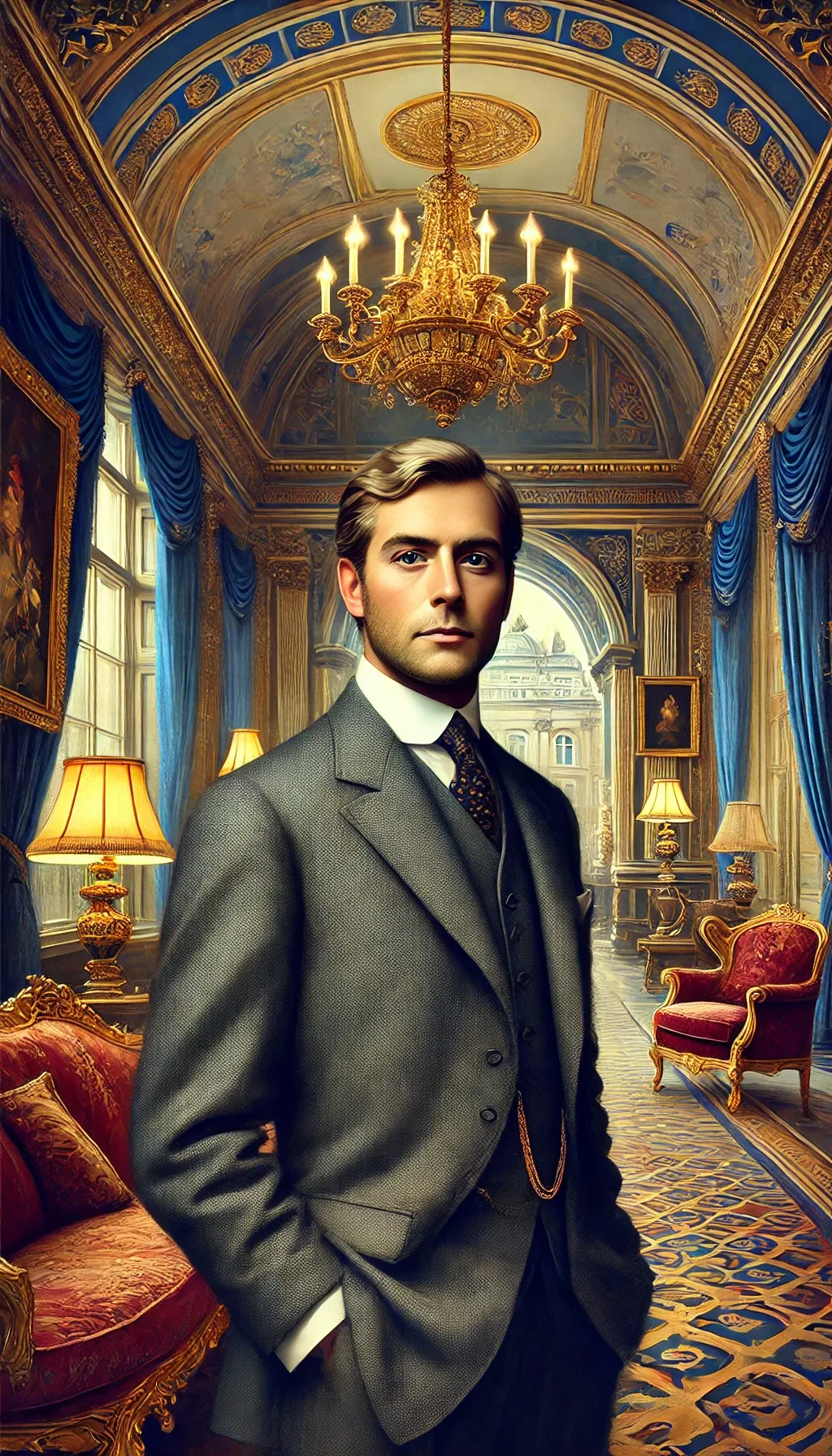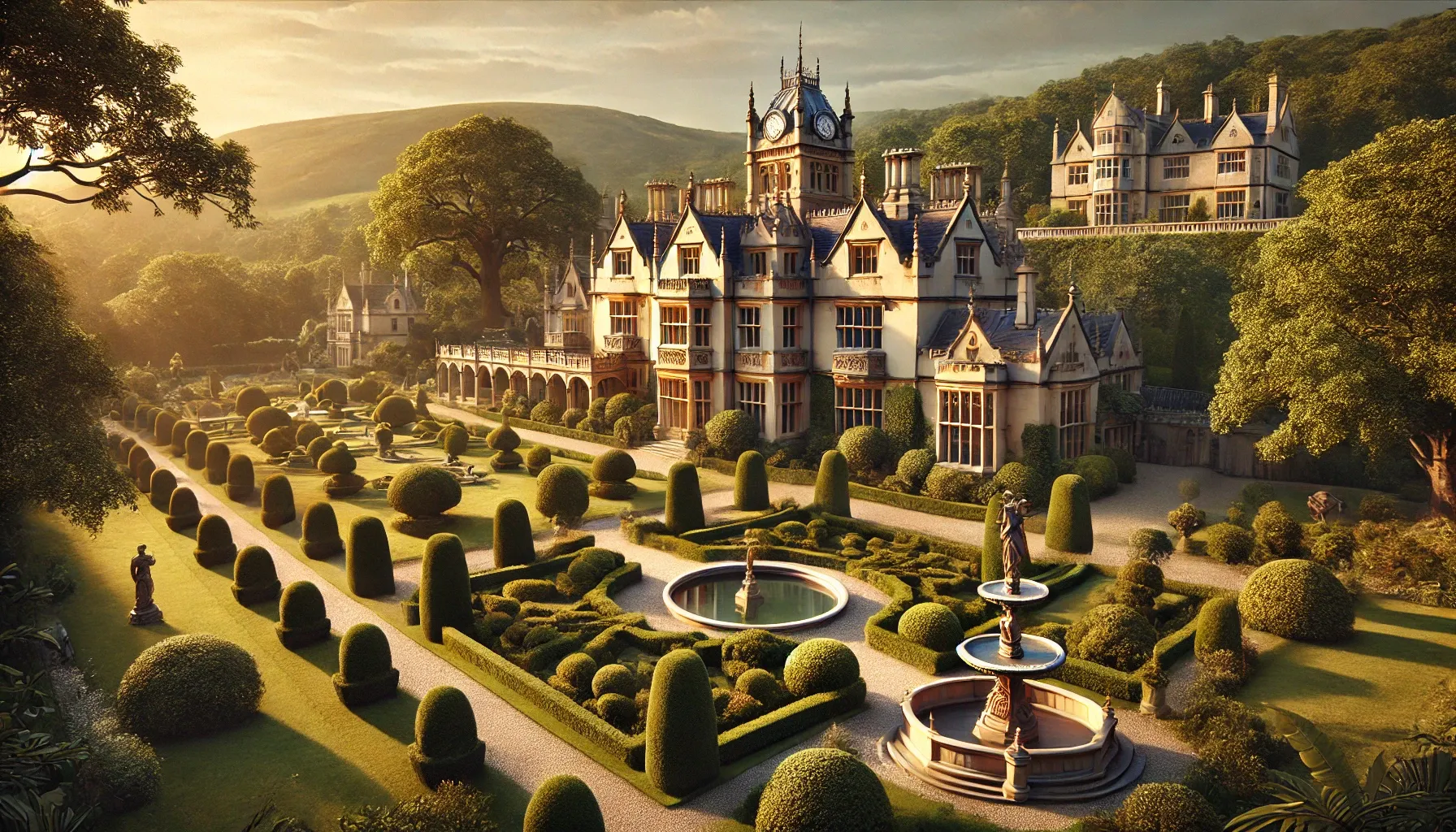How did Gerald Grosvenor's life change the history of the British aristocracy?

- How does the life of Gerald Grosvenor reflect the history of the British aristocracy?
- How did the history of the Grosvenor family lead to their wealth and influence in the United Kingdom?
- How did intuition change the Grosvenor empire and the fate of Gerald Grosvenor?
Gerald Cavendish Grosvenor: Biography
Gerald Cavendish Grosvenor, who was born on December 22, 1951, and passed away on August 9, 2016, held the title of the sixth Duke of Westminster. Throughout his life, he managed extensive land assets in prestigious areas of London, such as Mayfair and Belgravia, and owned significant estates in Cheshire and Scotland.
Gerald's fortune was estimated at £10.8 billion, which is approximately $14 billion. His wife, Natalia Phillips Grosvenor, the Duchess of Westminster, had remarkable roots: she was the great-great-granddaughter of Russian Emperor Nicholas I and the great poet Alexander Pushkin, and she was also the godmother of Prince William, who will become the next king of the United Kingdom.
Business and real estate
For many years, the main focus of the Grosvenor family's business has been in real estate. The Grosvenor dynasty has a long tradition of military service, and Gerald was no exception. He was born in Northern Ireland to a family where his father was a serviceman. The fate of this aristocrat followed the traditional path for members of his class.
He was educated at the prestigious Sandhurst Military Academy, famous for having trained there not only British princes, but also heirs of Arab monarchies, as well as many influential personalities.
Nevertheless, Grosvenor decided to focus on developing his real estate business project, following family traditions. Like his ancestors, he accumulated wealth by earning income from rentals. Every tenant, whether a resident of an elite London mansion or an apartment, always faced the question of timely rent payment, and they consistently paid Gerald the amounts due.
- The American embassy is renting premises on its territory on a long-term basis.
- The Duke never considered selling his property in the UK capital.
Achievements and influence
Over time, Gerald Grosvenor repeatedly made it onto the list of the richest people in the UK. As a representative of the aristocracy, he was held in high regard and was referred to as "Your Grace." His estate spanned large areas across the country.
However, in 2004, he lost his position to Russian oligarch Roman Abramovich and Indian businessman Lakshmi Mittal.
Grosvenor stood out among the other billionaires featured in such a prestigious ranking. Many of those at the top of the list were criticized as nouveau riche, while their supporters rightly pointed out that they were "self-made individuals" who achieved success through their own hard work. In contrast, Gerald was a product of history, thanks to his distant ancestor who happened to be in the right place at a pivotal moment.
Historical roots and heritage
The founder of the Westminster ducal family arrived in Britain with William the Conqueror almost a thousand years ago, and since then, his family has maintained significant influence in the country's history. This creates a contrast between the Grosvenors and modern wealthy individuals, whose successes are often merely the result of personal struggle and perseverance.
Therefore, the legacy of Gerald and his family continues to make an impact in both business and aristocratic circles. Their uniqueness is felt even after many generations, which confirms the significance of their history.
The story of Wilhelm Grosvenor
Wilhelm Grosvenor, known among his contemporaries by the nickname derived from the French expression gros veneur, which can be translated as "big hunter," held the position of gamekeeper at the court of the Norman duke who later ascended the throne of England with the same name. This loyal vassal received extensive land grants from the king in the northwestern part of England, around the city of Chester. Over time, this land became the property of the Grosvenor family, and it was on this land that their famous estate, Eaton Hall, was built.
Over time, these lands gained value, which became the basis of their considerable wealth.
The dowry that became the foundation for wealth
Imagine that in 1677, perhaps no one could have predicted that 500 acres on the outskirts of London, which became part of the dowry for Thomas Grosvenor's bride, Myra Davis, would soon turn into some of the most prestigious areas in the capital of the United Kingdom. Today, the names Mayfair and Belgravia are known not only within the United Kingdom but also beyond its borders.
Not only were luxury homes and hotels built on lands owned by the Grosvenors, but:
- the American embassy building, occupying an entire block.
Interesting fact: the embassy itself is located in a square named after the Grosvenors.
Geography of the territories
On the geographical map, it is clear who the rightful owner is here. The name "Windsor" is rarely encountered, while "Grosvenor" is widespread throughout the UK. Thousands of streets and squares in British cities bear the name of the Dukes of Westminster because it is on these lands that they are located.
For example, Grosvenor Street is where the company's head office is locatedGrosvenor Groupone of the leading organizations in the field of world-class property management.
29 January 2025
9 October 2024
29 January 2025
9 October 2024
29 September 2025

Gerald Grosvenor and his administration
The sixth Duke of Westminster, who managed the company despite his initial military education, turned out to be quite a successful businessman, developing his own approach to the business. Gerald Grosvenor took over the family business at the age of eighteen.
In the 1960s, when the British economy was going through tough times, his business also faced challenges. Appointed as a duke, he was able to find ways to turn the situation around. He said:"I realized early on that families often fail by assuming that their leaders can handle everything at once.".
New ideas for an old business
Grosvenor decided to bring in specialists from well-known investment institutions and banks, which certainly added new ideas to the vintage company. For example, he invited Sir Edward George to join the board of directorsGrosvenor Groupwho previously held the position of Governor of the Bank of England.
This step significantly accelerated the company's transformation and helped it adapt to the new economic conditions, which was crucial during times of change.

The role of intuition in the grosvenor empire
In the process of building their empire, the Grosvenors' intuitive abilities played a significant role in overcoming various crises with a dignified outcome and profit for themselves. For example, after the end of World War II, the aristocratic families settled in London and other major cities in the UK began converting their large homes into apartments that could be rented out or used as office spaces.
Grosvenor Group has been actively acquiring such properties in the most prestigious areas of London, and as market conditions have changed, has been involved in relocating residents from communal apartments and selling these properties to wealthy clients. This led, in particular, to the sale of two houses in the Belgravia area in 2004 at a price of £12 million each.
Key business principles
Family values are fundamental to their business, which emphasizes collaboration.
- 42%of the assets under management are jointly owned.
- 25%They invest in funds where they act as partners.
By 2015, the total value of Grosvenor Group's assets was estimated at13 billion pounds sterlingThe organizational structure of the company is a holding that includes five enterprises operating worldwide: from North America to Japan and Australia, with nearly half of the company's revenue generated from its activities in the United States.
Transforming neglected areas
In addition, Grosvenor Group is actively involved in transforming abandoned sites, such as those in Liverpool and Preston, located in the northwest of England. Urban industrial areas that lack visual appeal are being transformed into promising commercial and leisure spaces.
Personal difficulties of Gerald Grosvenor
Gerald Grosvenor had always felt himself to be lacking in ambition and perseverance, and it was not a hardship for him to admit it openly. His enormous capital, according to his intimate friends, was almost the cause of a deep depression. Once the Duke of Westminster was seen on a bench in Trafalgar Square, eating an ordinary sandwich. For Gerald Grosvenor, the word "duty" was more of a dull obligation than a vocation.
He sought to follow the motto engraved on the family crest:“Virtue, not origin”This constant internal tension drove Gerald to a nervous breakdown, after which he spent several months recovering in Spain, a place that was dear to him.
“One day I woke up and couldn’t get out of bed,” he shares his memories. “I thought it would be easier the next day, but the situation only worsened. I found it hard to look people in the eye and even to lead any kind of social life.” This situation demonstrates that even with substantial financial resources, a person can face deep internal conflicts and personal difficulties.
Conclusion
As we conclude our account of the life and legacy of the sixth Duke of Westminster, Gerald Cavendish Grosvenor, we cannot fail to note his unique impact on British real estate and society as a whole. Born into a world where aristocracy and business often came first, the life of this remarkable man showed that even within the traditional order, new ways to prosper could be found.
By combining the reputation of his lineage with modern business methods, he was able not only to preserve but also to enhance the legacy of his ancestors. With impressive assets in the most prestigious areas of London, such as Mayfair and Belgravia, Gerald left behind not just a legacy of billions of pounds, but also a cultural contribution that will be felt for a long time to come.
Successful adaptation to the economy
His approach to real estate management and ability to adapt to economic conditions made the company'sGrosvenor GroupOne of the leaders in its segment. Interestingly, his marriage to Natalia Philips Grosvenor, the great-great-great-granddaughter of Nicholas I and Alexander Pushkin, symbolizes not only the unity of two great cultures but also the reunification of the aristocracy, which, despite its roots, has managed to survive the centuries and maintain its influence.
Legacy and impact
Gerald Grosvenor not only became famous for his wealth but also left a mark as a person who was able to revive ancient traditions, blend them with modern realities, and ensure that the Grosvenor family not only preserved its name but also enhanced it. His story is inspiring and serves as a testament to how one can successfully manage a legacy by utilizing the knowledge and experience of previous generations while also attracting new talents and ideas from other fields.
Conclusions
Thus, Gerald Grosvenor's legacy will live on through the ages, not only through his estate assets, but also through the impact he had on the real estate world and today's society, which continues to change and evolve, incorporating a past obsessed with the spirit of innovation.
Tags
Comment
Popular Posts
29 January 2025
1551
9 October 2024
9957
9 October 2024
1493
29 September 2025
415
Popular Offers

Subscribe to the newsletter from Hatamatata.com!
Subscribe to the newsletter from Hatamatata.com!
I agree to the processing of personal data and confidentiality rules of Hatamatata













